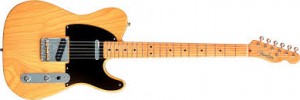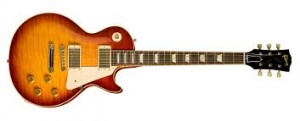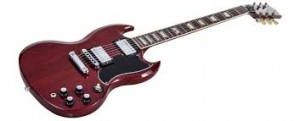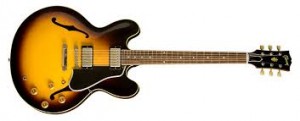This is a no BS series of articles aimed at young or new guitarists (and maybe not so new), on selecting gear that will get you the sound you’re looking for.
As a guitarist, I’ve often heard the saying “TONE IS EVERYTHING”…& I could not agree more. But how do you get that “tone” you’re looking for? While a good deal of it is “in the fingers” as they say, the tools on which you use those fingers matter a great deal. But when you’re just starting out, looking for a guitar, amp, or effect pedal, it can be a daunting task deciding where to spend your hard earned cash. Just try and google “best electric guitar” or “best guitar amp” and you’ll come across dozens of forums where people argue back and forth forever about how “boutique amps are the way to go” or “pedals need to be true bypass”…etc. I’ve been playing professionally for over 20 years, and I myself have spent hours upon hours reading these things. Well, my friend, I’m here to save you precious hours of YOUR life. I’m going to make this as simple and painless as possible, and guide you toward that “tone” you’re looking for.
GUITARS
By far, the most important piece of equipment you will have is your guitar. There are a million different brands and models to choose from, but 99% of them are copies or spin-offs of four main models. The Fender Stratocaster, the Fender Telecaster, the Gibson Les Paul, and the Gibson ES-335. When deciding what type of guitar you want, it is important to think about what type of music you play, or want to play, as the different models will lend themselves better to cetain genres. While ALL of these guitar models can be used for EVERY type of genre, you will make it much easier on YOURSELF if you choose a guitar that lends itself better to the type of music you want to play.
FENDER STRATOCASTER
These models are the most popular type of guitar, and for good reason. With three pickups, they are very versatile and can be used with almost any type of music you want to play. Most of these come with three single-coil pickups, which have a bell-like tone and are thinner sounding than humbucking pickups (otherwise known as “humbuckers“), although you can get them with a combo of single-coils & a humbucker for an even more versatile instrument. They are great for R&B, blues, rock, country, metal, reggae, and even some jazz. Some notable (and there are a very many) players that used Strats are Jimi Hendrix, Eric Clapton, Stevie Ray Vaughn, Eric Johnson, David Gilmour, and John Mayer. If you aren’t sure what type of music you want to play, or if you want to play various types of music, I would recommend this guitar.
FENDER TELECASTER
Similar sounding to the Strat, Telecasters have a more twang to their sound. These usually come with either two single-coil pickups, or a combo of one single-coil & one humbucker. Due to their more twangy sound, they are very popular with country music artists. However, they sound equally great in a blues, rock, and even a jazz context. Some notables include Brad Paisley, Vince Gill, Keith Richards, Jimmy Page (early Zep), Bruce Springsteen, & Muddy Waters. If you like that country twang or snappy blues tone, the telecaster might be your axe.
GIBSON LES PAUL/GIBSON SG
No guitar is associated more with rock n’ roll than the Les Paul. Sporting two humbuckers, this guitar has a fatter sound than the Strat or Tele. Combined with an overdriven amp, or an overdrive pedal, it IS the sound of rock. But they can sound equally great in almost any genre. There are a ton of “guitar gods” that play Les Pauls, including Jimmy Page, Slash, Joe Perry, Billy Gibbons, Neal Schon, & Ace Frehley. Related to the Les Paul, and popular in it’s own right, is the Gibson SG. With a thinner body than the LP, it’s not as heavy and has more of a midrange “bite” to it’s sound. Both are great guitars and an excellent choice if you are READY TO ROCK.
GIBSON ES-335
Last, but not least, is the Gibson ES-335. This guitar, and ones like it, differ from the others on this list in that it is a semi-hollow-body guitar. What that means is that there is a solid wooden block running through the center of the body. On either side of the block are hollow chambers with “F’ holes. What you get is a sort of mix between an acoustic and electric guitar. Sporting two humbuckers, and warmer in tone than a solid body guitar, it is great for jazz, rock, blues, and country. BB King, Freddie King, Chuck Berry, Lee Ritenour, Otis Rush, Roy Orbison, and Larry Carlton are a few of the many artists that play ES-335’s. If you’re into jazz, THIS is the guitar for you. But as you see from the list of players, it is just as “at home” in the blues or rock fusion.
There are many other brands that make quality guitars, such as Ibanez, Gretsch, Fernandez, Jackson, Ernie Ball, and PRS, to name a few. However, as I said earlier, most of the guitars on the market are copies or spin-offs of the four models mentioned above. You can usually tell which of the four it is by the shape of the body, and the type of pickups it has. In my opinion, you can never go wrong picking one of the four above. They are the standards by which all guitars are judged. My advice…go with what’s proven. Go with what the pros play. You will not regret it.
If you are just starting out, or you can’t afford to get the American-made versions of these guitars, Fender and Gibson also make affordable models under the Squier (Fender), and Epiphone (Gibson) brands. They’re great starter guitars, and are pretty close sounding to their pricier cousins. If all you wanna do is play for fun or rock out in your bedroom, a Squier or Epiphone is all you’ll ever need. If you wanna play professionally, I would suggest getting the affordable model, and when you’re ready, upgrade to the real deal.
In the next post in this series, we’ll focus on another important piece of equipment you will need in your quest for great tone: your guitar amplifier. In the meantime, if you have any questions for me, leave a comment and I’ll try and respond when I get a chance.
Until next time,
Russ




